Healthcare Financing And Equipment Leasing In Nigeria
 There are multiple challenges currently facing the healthcare industry in Nigeria. Some of these include access to quality and affordable health care as well as access to finance. Access to finance has been a constant challenge with increased budgetary constraints on the government side in light of decreasing crude oil prices, which is the mainstay of Nigeria’s rent-oriented economy.
There are multiple challenges currently facing the healthcare industry in Nigeria. Some of these include access to quality and affordable health care as well as access to finance. Access to finance has been a constant challenge with increased budgetary constraints on the government side in light of decreasing crude oil prices, which is the mainstay of Nigeria’s rent-oriented economy.
In addition to the foregoing, healthcare costs have been on the rise in recent times. The introduction of technology into healthcare provision has shortened the lifespan of medical equipment or technology so that a new technology replaces the forerunner in a matter of few years. This is also the case for other equipment and tools needed to provide healthcare. Dramatically, all these are within the context of a global economy just recovering from the Global Recession of 2008-2011 with the effects still noticeable.
As a result of the foregoing, new and innovative methods of financing beyond the traditional approaches have to be explored.
One of these innovative ways is medical equipment leasing.
WHO formally announces removal of Nigeria from polio-endemic list
 Today, the World Health Organization (WHO) formally removes Nigeria from the list of polio-endemic countries. The announcement comes after the historic achievement of the country in interrupting the transmission of wild poliovirus for a period of 15 months, which exceeds WHO’s target for interruption. Only 2 countries (Afghanistan and Pakistan) remain polio-endemic, down from more than 125 in 1988. To recognize this landmark achievement, the WHO Regional Director for Africa, Dr Matshidiso Moeti, attended an official ceremony at the State House to formally announce to the Government of Nigeria, through President Muhammadu Buhari, WHO’s decision to remove Nigeria from the polio-endemic list.
Today, the World Health Organization (WHO) formally removes Nigeria from the list of polio-endemic countries. The announcement comes after the historic achievement of the country in interrupting the transmission of wild poliovirus for a period of 15 months, which exceeds WHO’s target for interruption. Only 2 countries (Afghanistan and Pakistan) remain polio-endemic, down from more than 125 in 1988. To recognize this landmark achievement, the WHO Regional Director for Africa, Dr Matshidiso Moeti, attended an official ceremony at the State House to formally announce to the Government of Nigeria, through President Muhammadu Buhari, WHO’s decision to remove Nigeria from the polio-endemic list.
“It is my pleasure to congratulate the people and the Government of Nigeria on the interruption of wild poliovirus transmission and to inform that Nigeria has been officially removed from the list of polio-endemic countries,” said Dr Moeti, who is representing the WHO Director-General Dr Margaret Chan. “The remarkable achievement is a true testament of what political will, government leadership, community ownership, and the collective efforts of partners can achieve when united behind a global public health good. To achieve polio eradication, we must ensure that in the next two years no child is paralyzed due to polio. There is no time for complacency and we must remainvigilant,” added Dr Moeti.
NHIS Has Covered Less Than 7 Per Cent Nigerians Since Flag-off – NMA
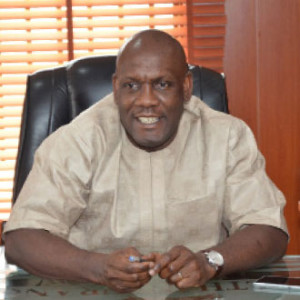 The Nigerian Medical Association (NMA) has stated that the National Health Insurance Scheme (NHIS) which was flagged off since June 2005 has covered less than 7 per cent of the Nigeria population. Dr Kayode Obembe, NMA President said this yesterday in a statement to mark this year’s International Day of Universal Health Coverage commemorated every December 12, in Abuja. He said governments at all level should redirect attention to community health insurance as a panacea to the 70 per cent out-of-pocket expenditure incurred by Nigerians.
The Nigerian Medical Association (NMA) has stated that the National Health Insurance Scheme (NHIS) which was flagged off since June 2005 has covered less than 7 per cent of the Nigeria population. Dr Kayode Obembe, NMA President said this yesterday in a statement to mark this year’s International Day of Universal Health Coverage commemorated every December 12, in Abuja. He said governments at all level should redirect attention to community health insurance as a panacea to the 70 per cent out-of-pocket expenditure incurred by Nigerians.
Iraq’s Health Systems Collapsing – WHO
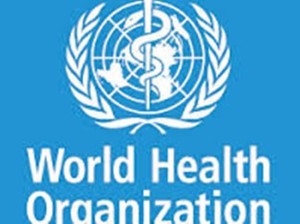 The World Health Organisation (WHO) on Tuesday in Baghdad cautioned that Iraq’s public health, water and sanitation systems were collapsing. WHO said Iraq’s prime minister responded to protests this summer over failing public services by launching a campaign against corruption and mismanagement. It said less than four months later, there was little sign of improvement in one key sector such as healthcare. “With Iraqis fleeing Islamic State in ever greater numbers, the country’s growing population of internal refugees is straining public facilities already ground down by decades of war, sanctions and red tape.
The World Health Organisation (WHO) on Tuesday in Baghdad cautioned that Iraq’s public health, water and sanitation systems were collapsing. WHO said Iraq’s prime minister responded to protests this summer over failing public services by launching a campaign against corruption and mismanagement. It said less than four months later, there was little sign of improvement in one key sector such as healthcare. “With Iraqis fleeing Islamic State in ever greater numbers, the country’s growing population of internal refugees is straining public facilities already ground down by decades of war, sanctions and red tape.
'We need to develop our primary health care centres' says health minister
 Prof Isaac Adewole, the health minister of Nigeria has pointed out that there is an urgent need to focus on Primary Health Care (PHC) in the country. Adewole, who spoke recently in Abuja during an interactive meeting with the House of Representatives Standing Committee on HIV, AIDS, Tuberculosis and Malaria Control made this statement. He also said that the priority of his ministry will be primary healthcare and a quest for the health sector to be funded appropriately and promoting public health education “We want the Primary Health Care (PHC) to be the first point of call so that it will be able to offer the basic care that ordinary Nigerians will require.
Prof Isaac Adewole, the health minister of Nigeria has pointed out that there is an urgent need to focus on Primary Health Care (PHC) in the country. Adewole, who spoke recently in Abuja during an interactive meeting with the House of Representatives Standing Committee on HIV, AIDS, Tuberculosis and Malaria Control made this statement. He also said that the priority of his ministry will be primary healthcare and a quest for the health sector to be funded appropriately and promoting public health education “We want the Primary Health Care (PHC) to be the first point of call so that it will be able to offer the basic care that ordinary Nigerians will require.
Health Act To Release N50bn Annually
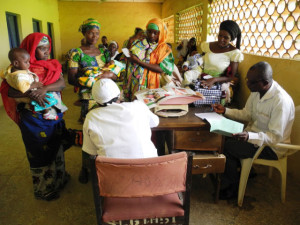 The National Health Act which is yet to be popular among Nigerians, and which is expected to encompass all health-related issues is to release about N50 billion annually. This can save the lives of 3,131,510 mothers, newborns and under 5s by 2022 and thus support Nigeria’s response to poor indices.
The National Health Act which is yet to be popular among Nigerians, and which is expected to encompass all health-related issues is to release about N50 billion annually. This can save the lives of 3,131,510 mothers, newborns and under 5s by 2022 and thus support Nigeria’s response to poor indices.
However, this depends on political will and Nigeria’s cumulative income. This was revealed yesterday by a member of the Health Reform Foundation of Nigeria (HERFON), Dr Seun Adeleke, at an interactive media session organised by Development Communications Network in collaboration with HERFON with the theme “Funding Maternal and Child Health: A Call to Action.”
Adeleke disclosed that the Health Act which also takes care of incessant strikes in the health sector, if implemented, is expected to be divided into five categories for the benefit of all. These include insurance, vaccines and essential drugs, laboratory facilities, boosting of healthcare facilities, etc.
Reps To Investigate NHIS Over Contributors’ Funds
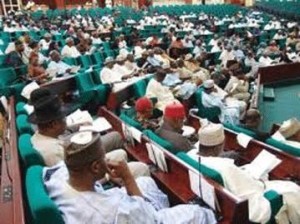 The House of Representatives on Thursday mandated its Committee on Healthcare Services to investigate the National Health Insurance Scheme (NHIS) over contributors’ funds and recommend ways of protecting it misuse. This mandate followed a unanimous adoption of a motion titled: “Need to protect contributors to the national health insurance scheme and insulate the scheme from misuse.’’ The motion was jointly sponsored by Reps. Onwubuariri Kingsley (PDP-Imo), Joseph Edionwele (PDP-Edo) and Chike Okafor (APC-Imo). Moving the motion, Kingsley said there was need to address the growing discontent among contributors to the scheme.
The House of Representatives on Thursday mandated its Committee on Healthcare Services to investigate the National Health Insurance Scheme (NHIS) over contributors’ funds and recommend ways of protecting it misuse. This mandate followed a unanimous adoption of a motion titled: “Need to protect contributors to the national health insurance scheme and insulate the scheme from misuse.’’ The motion was jointly sponsored by Reps. Onwubuariri Kingsley (PDP-Imo), Joseph Edionwele (PDP-Edo) and Chike Okafor (APC-Imo). Moving the motion, Kingsley said there was need to address the growing discontent among contributors to the scheme.
He cited unsatisfactory services and harrowing encounters with the Health Care Providers (HCPs) in terms of drug availability and administration. According to the lawmaker, thousands of eligible Nigerians who have applied for registration as beneficiaries have been unduly denied benefits from the scheme owing to administrative lapses. He added that the situation had brought untold hardship to many Nigerians.Kingsley said the scheme had attained only 2.5 per cent coverage out of an estimated 30 per cent projection for 2015.
AGPMPN, Medismarts Sign Agreement to Connect 2,000 Hospitals.
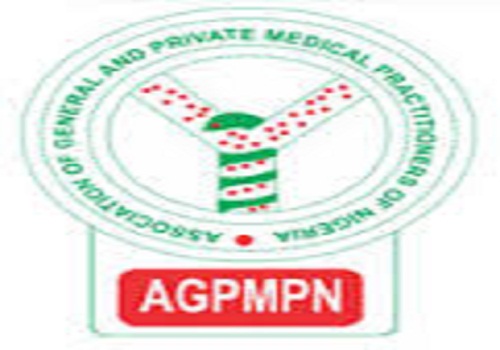 The Association of General Private Medical Practitioners of Nigeria (AGPMPN) and Medismarts have signed a strategic agreement that will see Medismarts deploy its Electronic Medical Records (EMR) cloud platform to its over 2,000 member hospitals in Lagos State. As part of the agreement, Medismarts has the mandate to go to the AGPMPN’s 18 zones in Lagos State with the objective of ensuring that all hospitals records are digitized and interconnected, a joint statement by the duo said.
The Association of General Private Medical Practitioners of Nigeria (AGPMPN) and Medismarts have signed a strategic agreement that will see Medismarts deploy its Electronic Medical Records (EMR) cloud platform to its over 2,000 member hospitals in Lagos State. As part of the agreement, Medismarts has the mandate to go to the AGPMPN’s 18 zones in Lagos State with the objective of ensuring that all hospitals records are digitized and interconnected, a joint statement by the duo said.FG Shuts Down FMC Owerri Over Workers’ Indiscipline
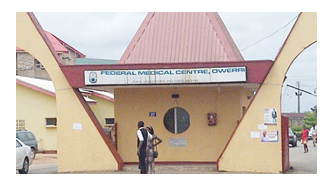 The federal government has shut down the Federal Medical Centre, Owerri, Imo state, over workers indiscipline and rounds of protests from union members who have insisted that the medical director, Dr Angela Uwakwem must be removed for false allegations levelled against her. It is also set to do a staff audit of 2,500 employees of the centre so as to ensure proper restoration of services that have been disrupted. This was announced yesterday, by the minister of health, Prof Isaac Adewale at a press briefing in Abuja.
The federal government has shut down the Federal Medical Centre, Owerri, Imo state, over workers indiscipline and rounds of protests from union members who have insisted that the medical director, Dr Angela Uwakwem must be removed for false allegations levelled against her. It is also set to do a staff audit of 2,500 employees of the centre so as to ensure proper restoration of services that have been disrupted. This was announced yesterday, by the minister of health, Prof Isaac Adewale at a press briefing in Abuja.
He said the federal government is fully in support of Public Private Partnership especially in the health sector, bearing in mind that the government can no longer fund health alone, which was the bone of contention, hence the crisis as “the proposal was vehemently opposed by people who may have been benefitting from the system and went on to incite the unions.
Country facing HIV drugs shortage, govt seeks cash for imports
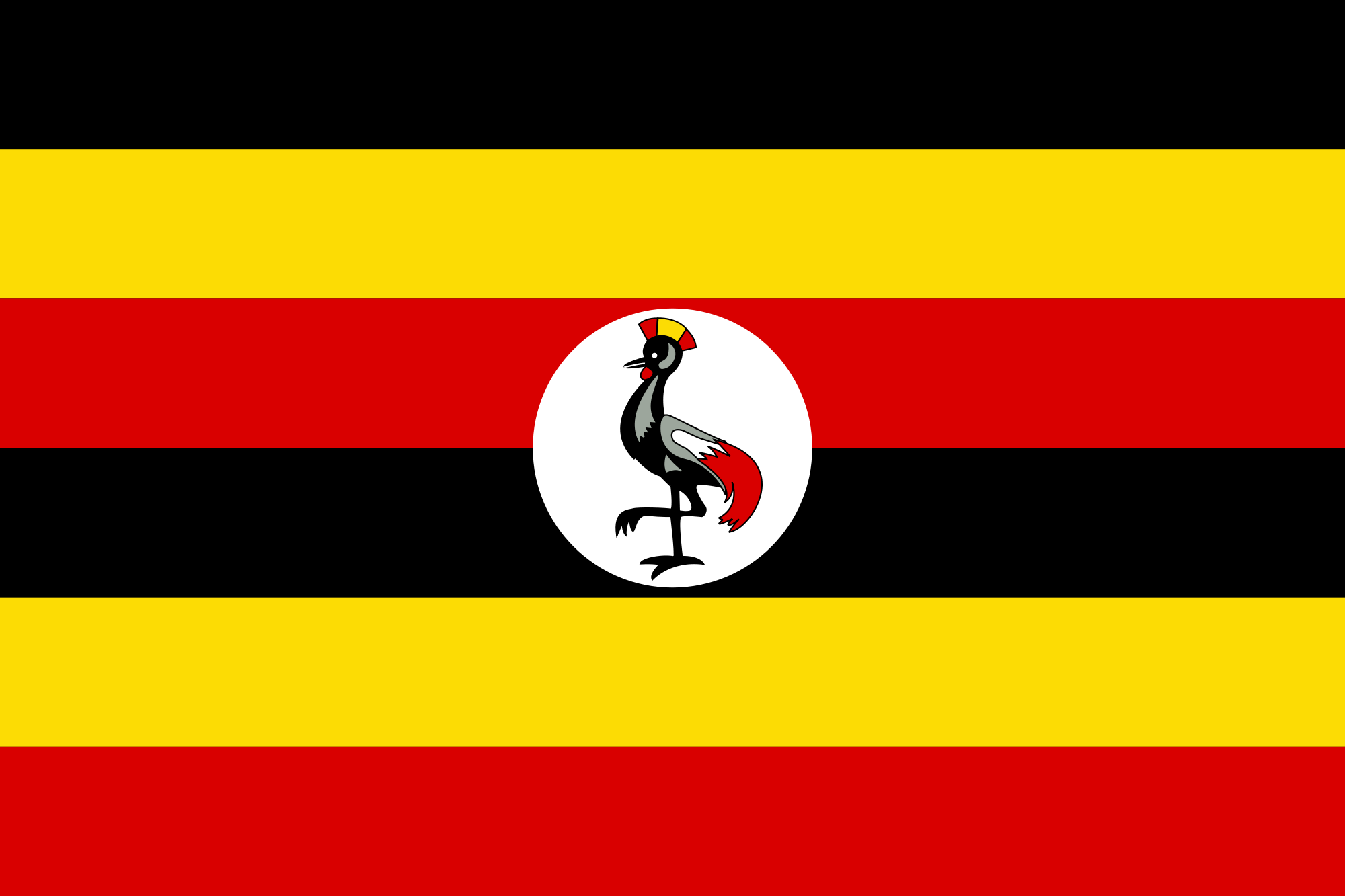 Uganda is suffering a shortage of imported drugs to treat HIVvictims due to a weak currency and insufficient foreign exchange but the government is raising funds to cover the shortfall, a senior finance ministry official said. Health activists say about 240,000 patients on publicly funded treatment programmes are at risk because of the shortage, forcing them to take lower dosages or none at all. Some activists said they were concerned the government was spending too much on measures designed to help them win presidential and parliamentary elections in February rather than on medicines. Officials denied the charge.
Uganda is suffering a shortage of imported drugs to treat HIVvictims due to a weak currency and insufficient foreign exchange but the government is raising funds to cover the shortfall, a senior finance ministry official said. Health activists say about 240,000 patients on publicly funded treatment programmes are at risk because of the shortage, forcing them to take lower dosages or none at all. Some activists said they were concerned the government was spending too much on measures designed to help them win presidential and parliamentary elections in February rather than on medicines. Officials denied the charge.
In Uganda about 1.5 million people, or about 4 percent of the population, is living with the HIV virus, of which about 820,000 receive antiretroviral therapy (ART) drugs that help prevent the infection turning into full-blown AIDS.






